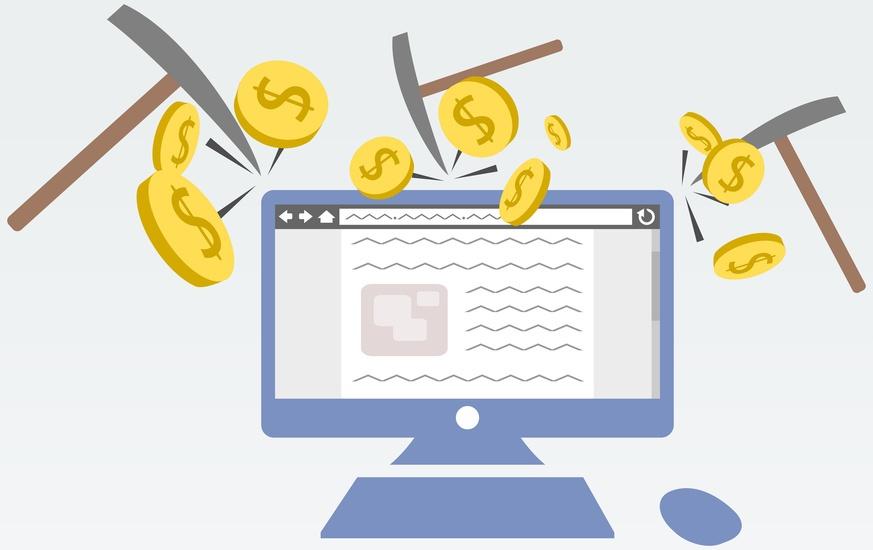Starbucks is also damaged ... Malware that "mines virtual currency" is soberly dangerous | Business + IT
Solving business issues by integrating IT and management
What is Business + IT?
Login
New member registration
E-mail newsletter registration
What is Business + IT?
Sales StrategyCost reductionOrganizational reformProduction / manufacturingcrisis managementcomplianceEnergy saving and environmental friendlinessBy industry / scaleCore systemInformation systemOperation managementSecuritynetworkmobilehardwaredevelopmentRelated genres
Starbucks is also damaged ... Malware that "mines virtual currency" is soberly dangerous
Following the coin check, Nano coins of 18 billion yen or more are illegally remitted even at BitGrail in Italy, and the virtual currency area is shaken by huge illegal remittances in quick succession. Cyber attacks and fraud on exchanges have become a major problem, but there is "mining malware" as a cyber attack around virtual currencies that continues to be sober. It was confirmed by security vendors from around the spring of 2017, and attacks have continued since then. There is no direct financial damage, but the risks deriving cannot be ignored.
Freelance writer Shinji Nakao
Freelance writer Shinji Nakao
Freelance writer and editor. From editing ASCII books to O'Reilly Japan, he translates, writes, and interviews both on paper and on the Web. He has a lot of IT, but occasionally writes in automobile-related media. I've been using the internet (though I didn't say it) since UUCP.
- Cryptocurrency risks are not limited to coin outflows
- There is no direct financial damage, but the PC has been hijacked
- Starbucks also victims The essential threat of mining malware
- IoT devices are also used for mining
Cryptocurrency risks are not limited to coin outflows
Related article ▲ Close ▼ Show all
Coincheck leaked virtual currency due to wallet management and system deficiencies. Blockchain cryptography and transactions are robust, but fraudulent remittances and outflows cannot be prevented unless the exchange and its systems are solid. This is the same as a banknote that is elaborate and difficult to forge can be stolen if the safe is not locked. Moreover, the criminal can steal 100 million units of money in a short time with his PC or smartphone without having to go to the bank or safe. Of course, it's almost impossible to forge or tamper with blocks, but it's better for criminals to target exchanges that are less managed than tedious mining (mining, cryptanalysis to generate cryptocurrencies). Therefore, it is expected that attacks on exchanges will continue to occur, but attacks on mining work are also continuing to be modest. It is called "mining malware", but it uses another person's PC for mining without permission. Infiltrate malware by attaching emails or accessing attack sites, and execute calculation processing for mining. The target PC is botted, calculated so that the user does not notice it after infection, and the generated virtual currency is sent to the attacker's wallet.There is no direct financial damage, but the PC has been hijacked
It is said that many such malwares are written in JavaScript and executed via a browser. However, the JavaScript executed by accessing the attack site does not directly mine, but downloads the mining program. Therefore, once infected, the PC will continue to be used for mining even if the browser is closed. Of course, the mining process itself is perfectly legal. There are bloggers who embed scripts in their own websites, mine them on the PCs of readers who visited the site, and burned up, but there are also sites overseas that embed scripts without permission instead of advertisements, and legality is questioned. It has been. Of course, there are sites and communities aimed at joint mining. The problem with mining malware is, of course, that it installs software without your consent and consumes (steals) the target's CPU resources without your permission. Launching a mining site without the explicit consent of the viewer or reader, or running software that the user does not intend is a criminal act. There is no direct damage to money, but the performance of the PC will drop and the electricity bill will increase. You may think that the processing speed and electricity bill are insignificant, but the CPU load of the encryption process and the power consumption are not stupid. This is because it keeps using the CPU continuously. Power Compare, the UK's energy price comparison platform, estimates that in 159 countries Bitcoin consumes less electricity for mining. The power consumed for mining virtual currencies exceeds the power consumed by Ireland, Croatia and Serbia. [Next page] Starbucks is also damaged What is the essential threat of mining malware?Recommended articles
Security Strategy Genre Seminar
To List
Security Strategy Genre Topics
To List
IT introduction support information of security strategy genre
To List
PR
SB Creative Co., Ltd.
Business + IT is operated by SB Creative Corp. of SoftBank Group.
Copyright © SB Creative Corp. All rights reserved.
By registering as a business + IT member, you can subscribe to member-only content and e-mail newsletters, and invite you to special seminars!
Registration merit Member registration (free) 



